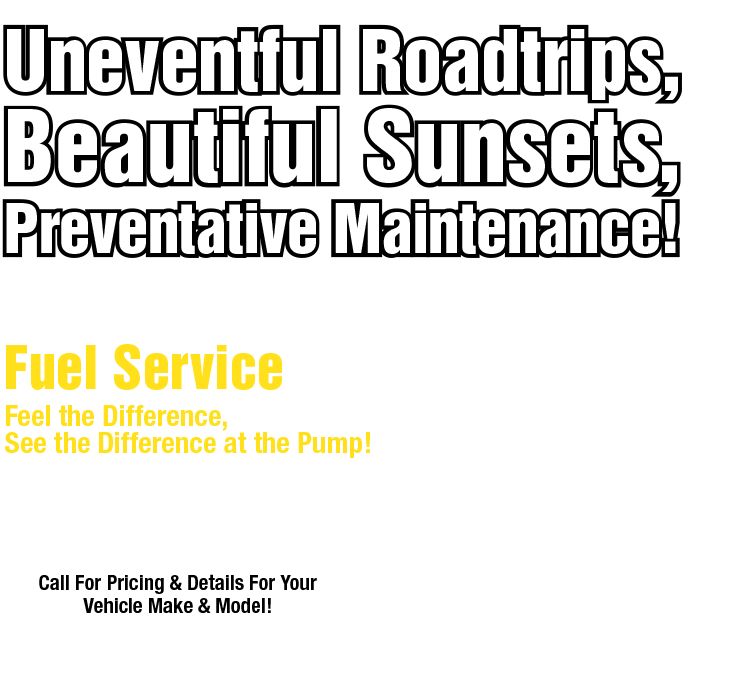PCV Valve Replacement
July 12, 2022
Hello Clawson, let's talk about your often-unnoticed but extremely important PCV valve. The energy from exploding fuel is what powers your engine. But some of the vapors from the explosions escape into the lower part of the engine, called the crankcase. The crankcase is where your engine oil hangs out. These gases are about 70% unburned fuel. If the gases were allowed to stay in the crankcase, they would quickly contaminate the oil and turn it to sludge. Clawson folks know that sludge is one of the biggest enemies of your engine, clogging it up and eventually leading to expensive failures. Also, the pressure buildup would cause seals and gaskets to blow out. Therefore, these gases need to be vented out.
Pre-1963, gasoline engines had a hose that let the fumes vent out into the air. In 1963, the federal government required gas engines to have a special one-way valve installed to help reduce dangerous emissions. (Can you imagine how polluted our Michigan air would be if every car had been releasing those poisonous fumes for the last 50 years?) Diesel engines are not required to have these valves.
The positive crankcase ventilation (PCV) valve routes crankcase gases through a hose and back into the air intake system where they are re-burned in the engine. Fresh, clean air is brought into the crankcase through a breather tube. It's really a pretty simple system, but it does the job. The re-circulating air removes moisture and combustion waste from the crankcase, preventing sludge. This extends not only the life of your oil but the engine as well. The PCV relieves pressure in the crankcase, preventing oil leaks.
Eventually, the PCV valve can get gummed up. Then it can't move enough air through the engine to keep it working properly for Clawson vehicles. If the PCV valve is sticking enough, you could have oil leaks, excess oil consumption and a fouled intake system. If you experience hesitation, surging or an oil leak, it may be a sign of PCV valve problems. Your vehicle's owner's manual may give a recommendation for when the PCV valve should be replaced - usually between 20,000 mi/32,000 km and 50,000 mi/80,000 km. Unfortunately, some don't list a recommendation in the manual, so it can be easy to overlook.
Many PCV system problems can be diagnosed by our technicians at Top Tech Auto Repair Clawson . Fortunately, PCV valve replacement is both quick and inexpensive at Top Tech Auto Repair Clawson. Proper oil changes will greatly extend the life of the PCV valve. Skipping a few recommended oil changes can allow varnish and gum to build up in the valve, reducing its efficiency. So now when your Clawson service technician tells you its time to replace your PCV valve, you will know what he's talking about. If you have had your car for a while and this is the first you've ever heard of a PCV valve, ask your technician to check yours out or call Top Tech Auto Repair Clawson at 248-589-0980.
Top Tech Auto Repair Clawson
664 S Rochester Rd
Clawson, Michigan 48017
248-589-0980
http://www.toptechautorepairclawson.com
Need Service?
More articles from Top Tech Auto Repair Clawson

A "Mounting" Problem (Motor Mounts)
February 22, 2026
You know how heavy your engine and transmission are, so you can imagine how tough the parts that hold them onto your vehicle's sub-frame must be. Not only must they support the weight, they also have to isolate vibrations and noise from the passenger cabin. Pretty tall order, wouldn't you say? ... More

Knowledge is Power (Battery Testing)
February 15, 2026
Its likely happened to you once or twice. You head to your vehicle, open the door, turn the key and lo and behold, your battery is dead. Now youre stranded, may have to get a jump or a tow, and youll definitely be late for wherever you were headed. While your vehicle may sometimes give you warni... More

Top Tech Auto Repair Clawson Brake Service for Safe Stopping in Clawson
February 8, 2026
Let's talk about something critical for all Clawson drivers: your brakes. Your vehicle is heavy, and it takes a lot of muscle to bring it and your passengers to a safe stop so everything needs to be in good working order. Here's an explanation on how your disc brakes work: The wheel hub keeps yo... More









